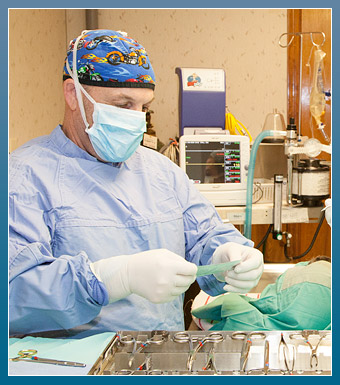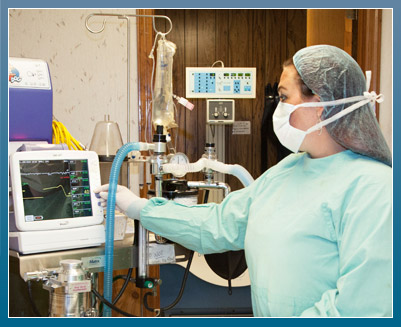Your Pet's Surgery
 Skilled and Compassionate Care When Your Pet Needs it Most
Skilled and Compassionate Care When Your Pet Needs it Most
We understand the decision to allow your pet to undergo surgery is never easy. You can have confidence the veterinarians and medical team at the Animal Hospital of Sayreville work hard to ensure each surgical procedure is completed according to the highest standards and is as comfortable and stress-free as possible for you and your pet.
We're happy to answer any questions regarding your pet's surgery, and your veterinarian will provide you with information on proper postoperative care. We want you to feel comfortable knowing you've made the right choice for your pet, and that you're as prepared and supported as possible in your companion's healthy recovery.
Surgical Procedures at Our Hospital
Our highly skilled, experienced veterinarians perform many types of surgeries, including but not limited to:
|
|
Radiowave Surgery
For the health, safety and comfort of your pet our veterinary team is pleased to offer radiowave technology as part of our surgical services. Radiosurgery uses radiofrequency energy to cut and coagulate tissue. With radiowave surgery, your pet will require anesthesia for a shorter period of time and experience shorter post-surgical healing. Some procedures may require only a local anesthetic.
Benefits of radiowave surgery include:
- Decreased Post-Operative Pain
- Decreased Post-Surgical Edema
- Less Blood Loss
- Reduced Risk of Infection
- Quicker Recovery
 Personalized Anesthesia
Personalized Anesthesia
Ensuring the health and safety of your pet during surgery is our utmost concern and requires an anesthetic and monitoring regimen that adheres to the highest principles and ideals of quality care. We utilize a multi-parameter monitoring and anesthesia system to ensure your pet's safety during all surgeries.
Prior to surgery, your pet receives a thorough examination and a pre-surgical blood screen. The results of these tests and your pet's past anesthetic history, breed, preexisting conditions and age are used to create an individualized anesthesia protocol. We are equipped with state-of-the-art anesthetic machines offering safe inhalant anesthesia.
During surgery, your pet is cared for by a well-trained and experienced veterinary technician using our state-of-the-art monitoring system, which tracks blood pressure, heart rate, respiratory rate, body temperature and oxygen level.
Compassionate Pain Management
We all know pain hurts, but pain also has many other detrimental effects on your pet's body. Pain slows healing, decreases activity and causes behavioral changes such as aggression, anxiety and depression. Pain worsens diseases like arthritis and potentially some cancers. It also interferes with the bond between you and your pet.
As part of our commitment to keep your pet comfortable and protect the bond you share, we practice the most up-to-date and comprehensive pain management protocol. Before, during, and after surgery, as well as for acute and chronic conditions, we use all our available and safe resources, including local anesthetics, NSAIDs (non-steroidal medications) and oral and injectable analgesics for the complete comfort of your pet. We urge you to discuss operative pain management options with our staff.
Responsive Postoperative Care
Following surgery, your pet is closely monitored and cared for by our attentive medical team for a safe recovery. As your pet is discharged from the hospital, you will be provided detailed information on how to administer any medication and properly care for your pet after surgery. We're also happy to address any questions or concerns that may arise after you return home.
